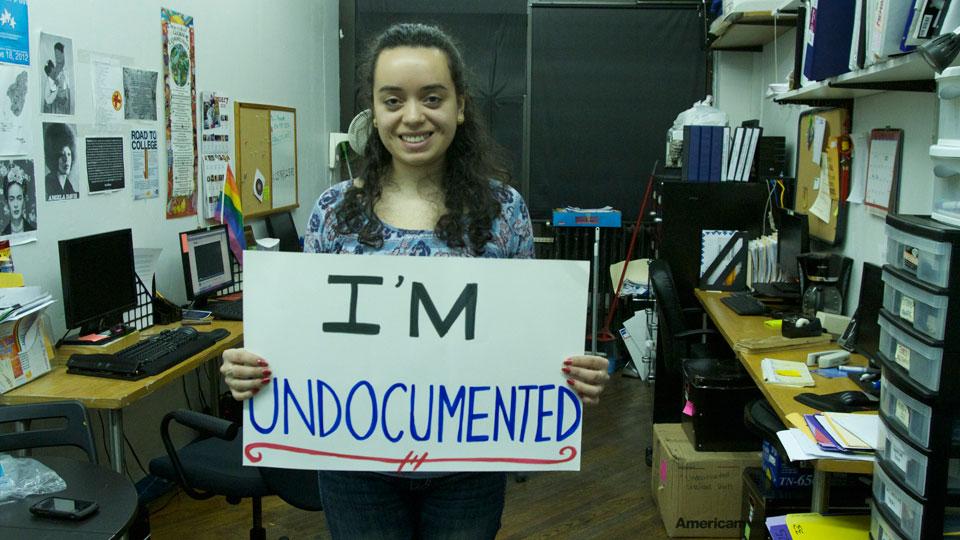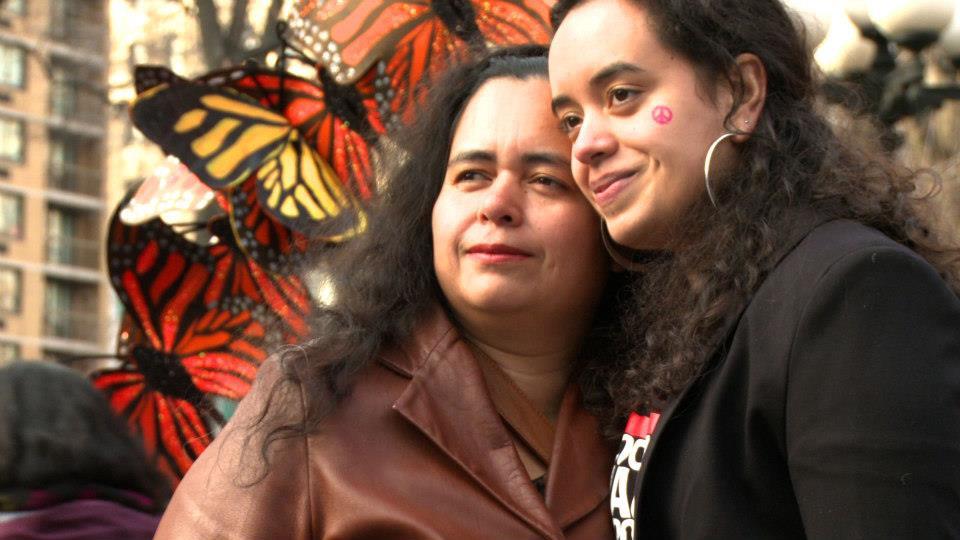It's been three years since immigration activist Angy Rivera and documentary filmmaker Mikaela Shwer met in August of 2012. After stumbling upon Rivera's 'Ask Angy' column, the first advice column for undocumented youth in America, Shwer became curious about the story behind it.
The two had lunch, and decided to make a short video about about the experience of creating this digital haven. Years later, the two friends find themselves doing press for No Le Digas a Nadie, a poignant and personal feature film.
"I am constantly inspired by [Angy] and the entire community around her," says Shwer. "Her resilience and the power she finds through sharing her story. People really respond to her."

Now a sister to two American-born brothers, she knows the unique struggles that come with living in a mixed status family. She knows how difficult it is for undocumented youth in America to finance a college education. She knows the sheer terror that the simple act of boarding a domestic flight can bring. She knows of countless neighbors and friends who have been arrested and deported for minor infractions. She knows what it's like to live in fear.
But despite being a reserved person by nature, and her mother's concern, Rivera began to speak up about her undocumented status about five years ago. She decided to "come out" as undocumented. Through the New York State Youth Leadership Council, an undocumented youth led organization, Rivera found a community to be honest with for the first time in her life. Now a college student with one semester left, she dedicates her life to helping undocumented women survive.
"Listening is one way to help friends or family going through this," says Rivera. "A lot of people think that undocumented immigrants can't think for themsleves. Or that they need people to speak for them because they don't have papers. Just listen to them and ask what kind of support is needed. Ask how you can find solutions together — not for them."
Rivera and her mother are now in posession of U visas, a special kind of visa that they were only able to apply for because Rivera was sexually abused by her stepfather as a child. Their life is changing now, but Rivera's focus is on helping those who are struggling like she once did.

After graduation in December, Rivera hopes to work with immigrant women and families. She also plans to raise funds for immigrant student scholarships.
Don't Tell Anyone (No Le Digas a Nadie) premieres Monday, Sept. 21 at 10 p.m. EST on PBS's POV.
Our coverage reaches millions each week, but only a small fraction of listeners contribute to sustain our program. We still need 224 more people to donate $100 or $10/monthly to unlock our $67,000 match. Will you help us get there today?
